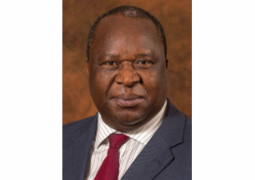
Outlining the updated fiscal and economic forecasts for the current fiscal year, Mr Tito Mboweni said Covid-19 has turned the global economy upside down. He said: “In the February Budget, we expected that the global economy will expand by 3.3% in 2020. We now expect a global contraction of 5.2% this year. This will bring about the broadest collapse in per capita incomes since 1870.”
According to Mr Mboweni, throughout the world tens of millions of workers have lost their jobs and here in South Africa unemployment increased by one percentage point, reaching 30.1% in the first three months of this year.
He said the South African economy is now expected to contract by 7.2% in 2020. He said that is the largest contraction in nearly 90 years. “Inflation will likely register 3% in 2020, in line with the outcome of this morning. Commodity price increases and a weaker oil price have softened the blow, but as a small open economy reliant on exports, we have been hit hard by both the collapse in global demand and the restrictions to economic activity,” he added.
He told the members of the National Assembly that South Africa has responded to this economic shock with an unprecedented set of measures. Never before, he said, has the government worked together so closely with the private sector, organised labour, community and the central bank.
“Standing as a united people, it is clear we can achieve anything. The government’s Covid-19 economic support package directs R500 billion straight at the problem. This is one of the largest economic response packages in the developing world,” said Mr Mboweni.
He said the South African Reserve Bank (SARB) has reduced interest rates and made it easier for banks to lend money. Furthermore, he said SARB has also supported liquidity in the domestic bond market. He said the bank has stated that it stands ready to take additional action, should the need arise.
“More than two million customers have received around R30 billion in relief from their commercial banks. Insurers and medical aid schemes have provided premium holidays. Landlords have provided rental relief, all in 100 days. This is indeed a remarkable achievement,” he added.
Turning to the emerging fiscal framework for 2021/22, Mr Mboweni said projected total consolidated budget spending, including debt service costs, will exceed R2 trillion for the first time ever. “Gross tax revenue collected during the first two months of 2020/21 was R142 billion, compared to our initial forecast for the same period of R177.3 billion. Put another way, we are already R35.3 billion behind on our 2020/21 target,” he said.
He said as a consequence, gross tax revenue for the 2020/21 fiscal year is revised down from R1.43 trillion to R1.12 trillion. “That means that we expect to miss our tax target for this year by more than R300 billion. Part of this revision is because the measures announced earlier this year give taxpayers outright relief of R26 billion and delays in tax collection of approximately R44 billion.
He said these proposals are contained in the Disaster Management Tax Relief Bill and the Disaster Management Tax Relief Administration Bill that he tabled before the hybrid plenary sitting today.
Taken together, he said the measures and adjustments he presented translate into a consolidated budget deficit of R761.7 billion, or 15.7% of the GDP in the 2020/21 financial year.
He said their early projection is that the gross national debt will be close to R4 trillion, or 81.8% of the GDP by the end of this fiscal year. “This is compared to an estimate of R3.56 trillion or 65.6$ of the GDP projected in February. Without external support, these borrowings will almost entirely consume all of our annual domestic savings, leaving no scope for investment or borrowing by anyone else.”
Given that situation, Mr Mboweni said, the government needs to access new sources of funding. He said the government intends to borrow money from international financial institutions to support its response to the pandemic. “We must make no mistake; these are still borrowings. They are not a source of revenue, they must be paid back,” he emphasised.
By Mava Lukani
24 June 2020

